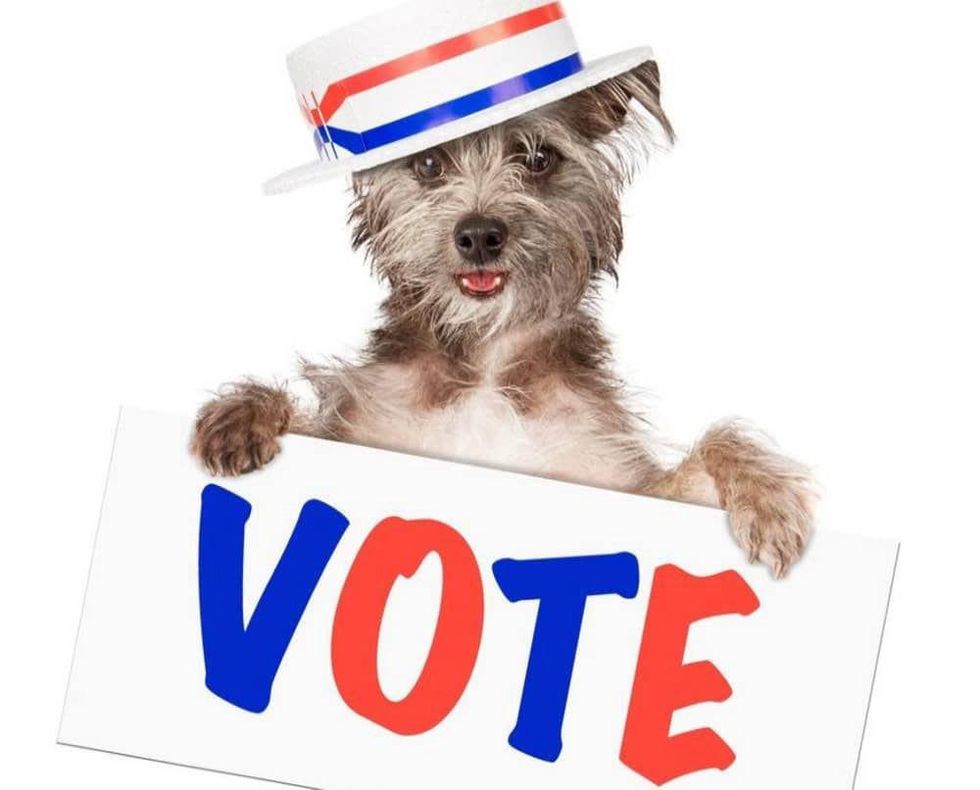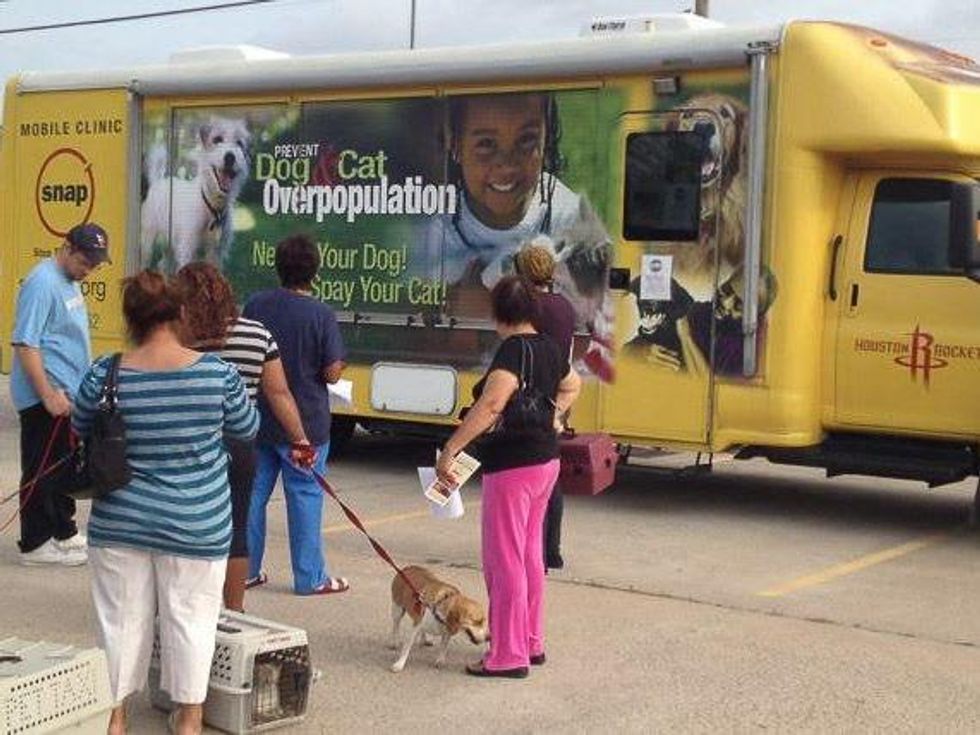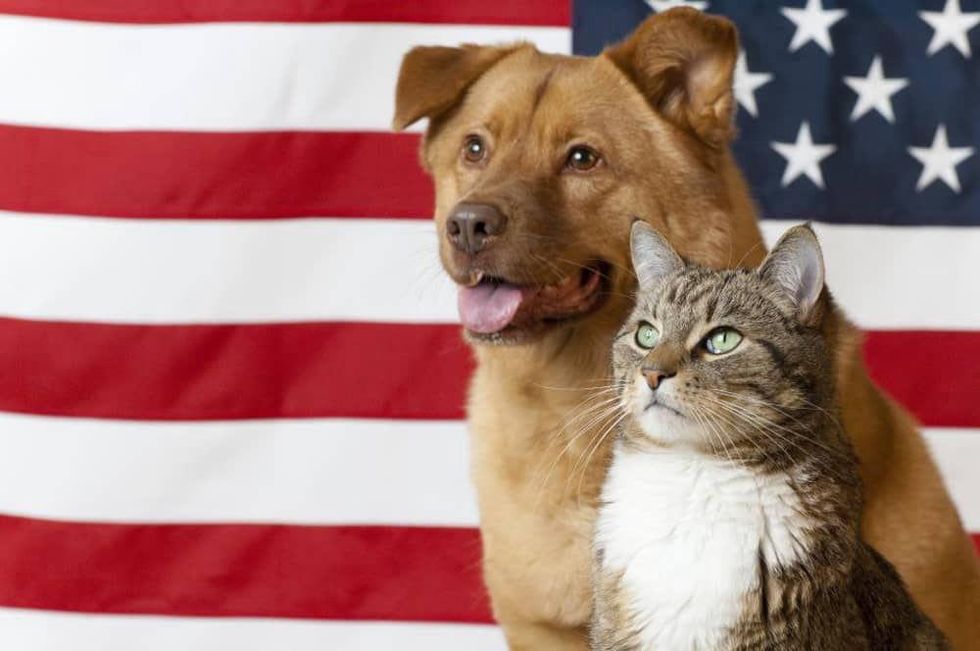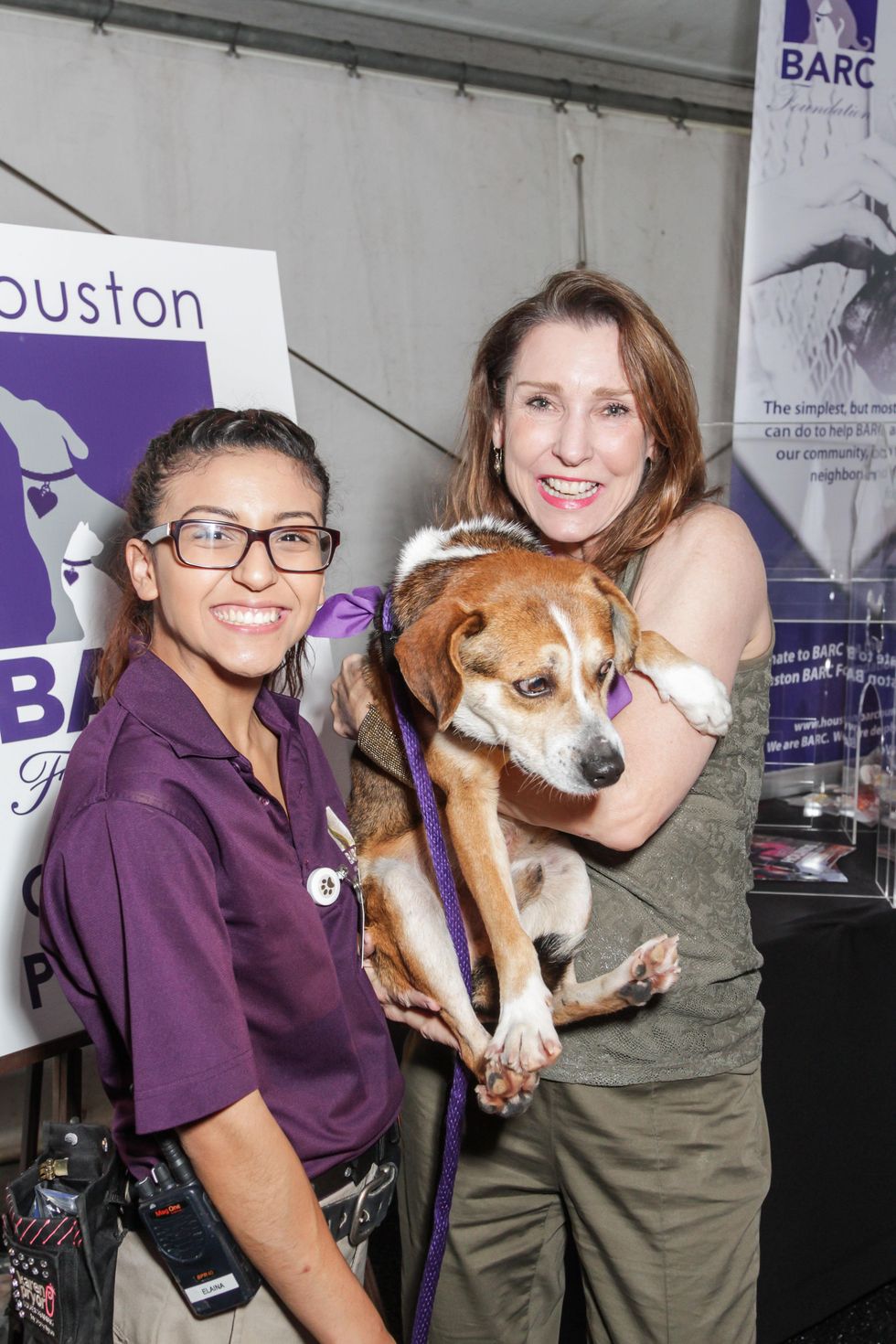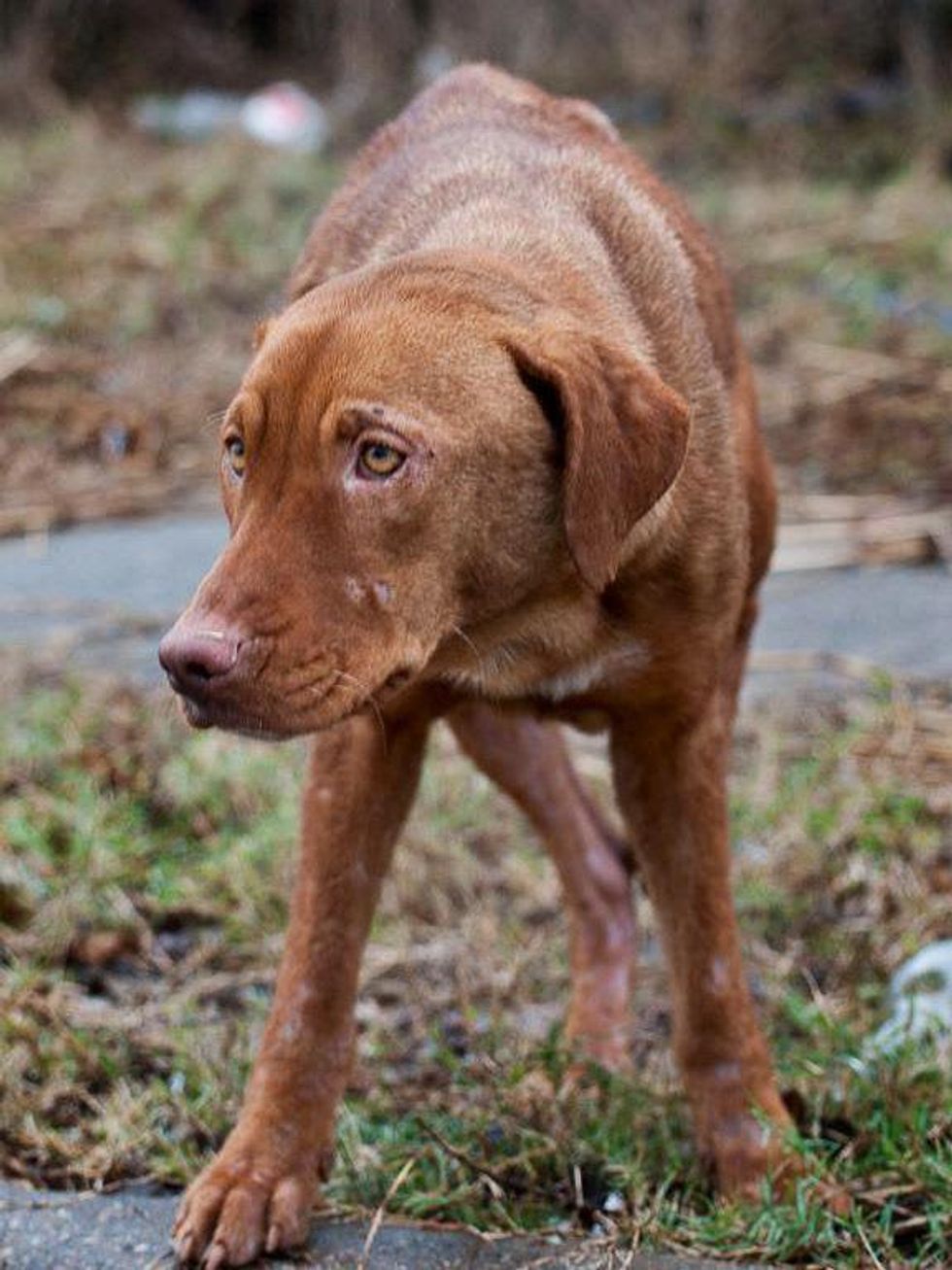Help Is on the Stray
Houston, we have a Cat-a-strophic (and stray dog) problem! Here's how it can be solved
Houston has been getting a lot of good press lately: One of the best places for business, culture, college graduates and even as a place for outdoor dining. But if you are a stray dog or cat, our city is not a good place to make your home.
Here's the Bad News
Houston is home to an estimated 750,000 to 1.2 million stray animals and abandoned pets. To put it into perspective, that equals approximately half of the city’s total human population. These animals make their homes on the mean streets of Houston living in horrific conditions, no access to food, water or shelter; many sick or wounded subject to attack by other animals and, sadly, abuse by people; many run over by cars; others just slowly starve to death.
It is widely acknowledged that the animal overpopulation problem here is beyond critical. Chronically underfunded, our city and county animal control departments alone euthanized more than 25,000 animals last year. Private shelters killed many more and though it has improved, at one time the estimate for animals euthanized in Harris County in a single year exceeded 80,000.
Someone explained it this way: Imagine filling each of the 40,000 seats in Minute Maid Park with a homeless animal and killing them all-and then doing the same thing all over again. Every year. Can we live with that?
First Part of the Solution
To stop the killing we need to drastically reduce the number of animals arriving at our shelters. The only way to do this is with a comprehensive aggressive spay/neuter program. It's the single most important tool in slowing the growth of our animal population. Without it, we won't succeed.
The Good News
Houston’s Bureau of Animal Control and Regulation (BARC), along with Houston’s leading no-kill animal shelter, Friends For Life, Emancipet, SNAP and others are partnering to create innovative programs that are very successful in taking services into communities where the ability to pay for services is limited and transportation to low cost spay/neuter clinics is a barrier.
And these programs don't just address pets with owners but also free roaming strays which are a huge part of our overpopulation numbers. Abandoned and feral cats reproduce by the thousands. While reducing pet overpopulation and promoting responsible pet ownership is the primary goal, a side benefit is healthier and safer streets and sidewalks — a comprehensive quality of life improvement for both the pets and the people living in the impacted areas.
While Houston is making progress we lag behind other cities No Kill LA (NKLA) is working on making Los Angeles the largest no-kill city in the country. Closer to home, Pets Alive Austin and now Pets Alive San Antonio are making great progress in reducing the number of adoptable animals killed in these cities-all with the help of innovative public/private partnerships.
For Houston to succeed, we need financial help to expand what has proved to be successful not only in other cities but right here at home. That is how we can substantially reduce shelter intakes and killing of adoptable animals and make real progress in addressing this crisis. But there are ways you can help.
Small Ways You Can Make A Texas-Sized Difference:
1. Start at Home. Spay/neuter all of your pets as soon as they are five months old to avoid an unwanted litter. Unfortunately, breeding, no matter how well intentioned, is one of the major causes of overcrowding in our shelters and on our streets, which leads to more pets being killed. Spaying and neutering of our dogs and cats is the ONLY solution to Houston's animal overpopulation crisis. Let it start at your home.
2. Adopt, don’t shop. Adopt rather than buy your pet. Every time a pet is bought from a breeder or on the internet by someone here in Houston, a rescue animal loses his or her shot at a home. This increases the odds that a pet, who could have been adopted, will be euthanized at a local shelter. Visit your local shelters or one of the many rescue groups to find just the right dog or cat for you. Petfinder.com also has hundreds of listings for adoptable rescue pets of all breeds and ages.
3. Foster an adoptable pet. Fostering a pet in your home is at the heart of saving animals’ lives. It's a great way to give a dog or cat a shot at a better life without a long-term commitment. Lack of foster homes severely limits the number of animals that can be pulled off the streets. Fostering makes a life and death difference to an adorable pet and to the family that will adopt him or her. Take a look at nationally recognized Corridor Rescue and Forgotten Dogs of the 5th Ward to get some idea of the grueling work rescue groups do pulling animals off the street. The more people they can get to foster, the more of these animals can be saved-and the fewer homeless puppies and kittens show up on our streets.
4. Donate Time. Sign up at a shelter or rescue group. Whether it's answering phones, walking dogs, cleaning cages, or just giving a shelter animal a little extra TLC, your time goes a long way. These organizations could not do this important work without their volunteers. It is also a wonderful way to meet like-minded animal lovers.
5. Donate Money. There are many Houstonians trying to make a difference. We have more than 400 small no-kill rescue groups in Houston. They need funds for food, supplies and vet care. Or give to a “save a cat/dog program” at a local shelter. Wouldn’t you really rather save a pet than get yet another bottle of wine at the holidays?
6. Spread the Word. Share news of the Houston animal crisis with your family, friends and colleagues. Many people don't understand the severity of the issue. Spread the word about adoptable pets by sharing on Facebook and other social media and ask your friends to do the same thing. Posts that go viral can do wonders to help raise adoption and foster rates.
7. Get involved.Ask your elected representatives about what they're doing to help ensure the City of Houston has the resources it needs to address this problem. In spite of increased funding in recent years, in 2014 BARC had the lowest per capita budget of any major city animal department in Texas.
We have a mayoral election coming up and Unity for A Solution, a coalition of rescue groups founded in 2013, is surveying candidates to make sure that this issue is part of the campaign discussion. Support candidates who get it! A candidate forum on Saving Houston's shelter pets, sponsored by the Houston Voters for Companion Animals, will take place on September 29 at 7 pm at the Trini Mendenhall Community Center, 1414 Wirt Road. Admission is free but registration to attend is encouraged.
We can do this only with a combination of big programs and small, incremental individual efforts. Any time you help an animal in need, you are making a small dent in the overall problem, but a huge difference to that particular animal. Luckily, individual contributions collectively add up and the whole becomes greater than the sum of its parts. This is one problem where an individual can literally save a life. You will be a better person for doing so and we will be a better community for it.
Jane Crowder Schmitt is an independent advocate for animal issues and supporter of groups focused on animal rescue and spay neuter initiatives in Houston.
A candidate forum on Saving Houston's shelter pets, sponsored by the Houston Voters for Companion Animals, will take place on September 29 at 7 pm at the Trini Mendenhall Community.
